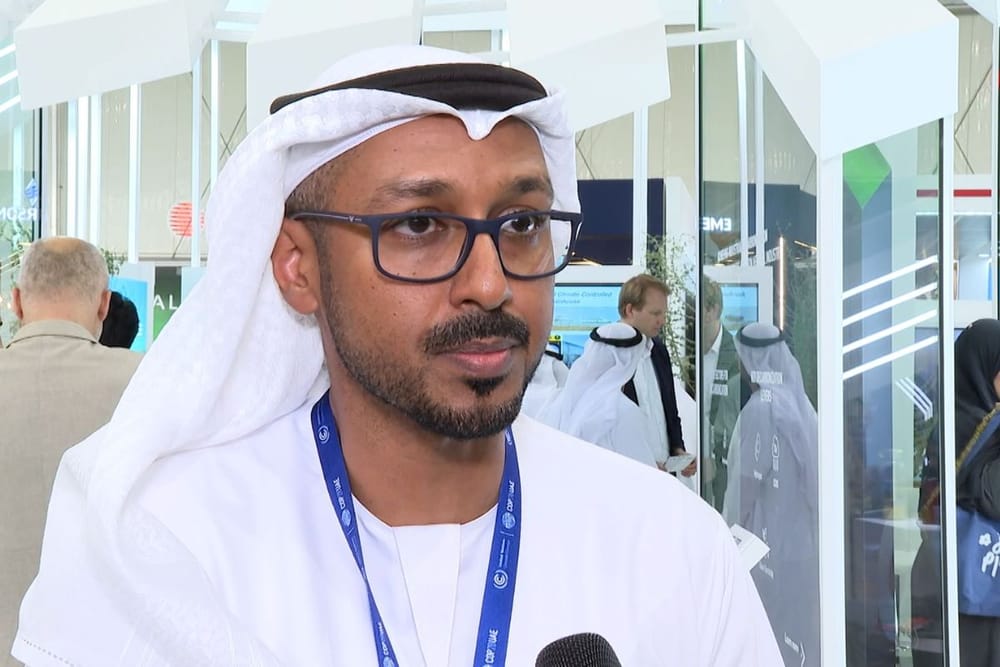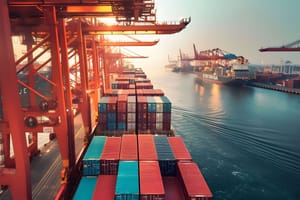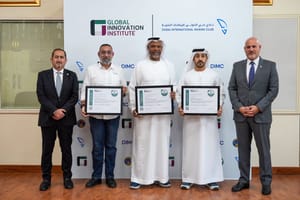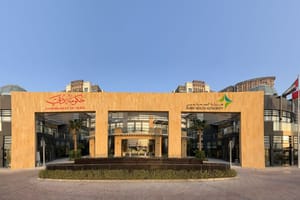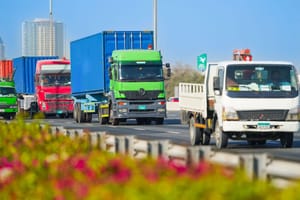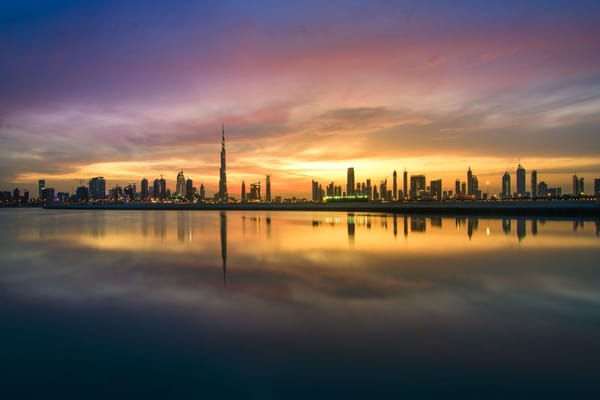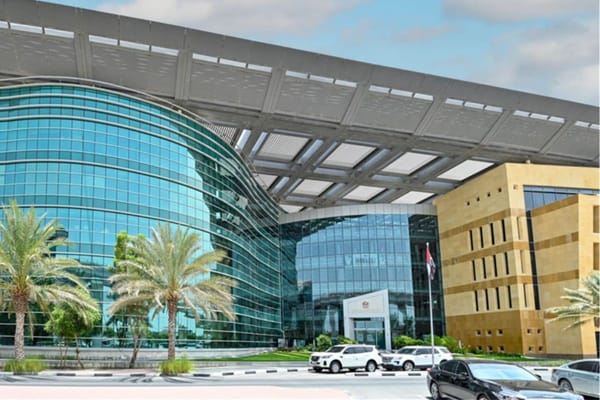The UAE Ministry of Industry and Advanced Technology (MoIAT) is spearheading the drive towards a more sustainable future with its ambitious roadmap for decarbonising the industrial sector, Osama Amir Fadhel, Assistant Undersecretary of the Industry Accelerators Sector at the MoIAT, said.
He stated that the plan was launched during the COP28, and aims for a staggering 93% reduction in emissions by 2050, effectively removing 2.9 gigatons of carbon dioxide from the atmosphere. This aligns perfectly with the national goals outlined in the National Strategy for Industry and Advanced Technology and the UAE Net Zero 2050 strategy.
In statements during the now-running global event, he said that MoIAT's Pavilion at COP28 serves as a platform to showcase cutting-edge technological solutions that facilitate the transition towards climate neutrality. By fostering collaboration and interaction between innovators, startups, and established players in the industrial, technological, and environmental sectors, the pavilion cultivates a fertile ground for new ideas and accelerates progress towards a more sustainable future.
He said that one key initiative highlighted at the pavilion is ‘Make it in the Emirates’, which promotes the UAE's unique advantages for sustainable industrial investment. The programme emphasises the supportive business environment established within the country and aims to attract international investments that contribute to sustainable growth. He also pointed out the Industrial Technology Transformation Index (ITTI), which is also being showcased. As the first index to combine the principles of the Fourth Industrial Revolution (4IR) with sustainability criteria, ITTI provides valuable guidance for companies seeking to reduce their environmental impact.
Fadhel said that MoIAT has launched a number of initiatives and projects to reduce carbon emissions and achieve climate neutrality. One of these initiatives, he mentioned, is the "Green ICV" criteria, which encourages companies to adopt sustainable practices throughout their value chain. Companies that meet the Green ICV standard can earn additional points in the National In Country Value (ICV) Programme. The additional bonus can reach 3% and is determined by measuring the company's sustainability practices, including water management, material recycling efficiency, and emission reduction.
He said the Ministry also launched the ITTI to promote sustainability in the UAE's industrial sector. The index measures the adoption of advanced technologies by companies and encourages them to adopt sustainable practices. The ITTI is expected to attract investment and create jobs in the UAE's industrial sector.
The Ministry has developed and implemented a wide range of specifications and regulations to promote sustainable industrial practices. These include specifications for electric cars, recycled plastic packaging, and energy-efficient appliances. The Ministry is also working to encourage the adoption of carbon capture and storage technologies in difficult-to-decarbonize industries, such as iron, cement, and aluminum.
He elaborated on the MoIAT's crucial role in COP28 and its initiatives to incentivize industrial companies in reducing carbon emissions. He emphasised their alignment with the ambitious goals of “Operation 300bn,” the UAE’s industrial strategy, which aims to bolster the UAE's industrial sector's growth and competitiveness. This strategy leverages various enablers and incentives to support the establishment, growth, and expansion of industrial businesses.
The COP28 Presidency has unveiled a comprehensive action plan built upon key and specialised pillars, with the most prominent being technology, innovation, and financing. MoIAT identified these pillars as crucial to achieving sustainable economic development and a green future for the UAE. They have effectively integrated this focus into their global climate action efforts through numerous initiatives.
He mentioned ensuring these pillars by initiating various programs, notably the 'National Programme to Transform Technology.' Its goal: enhance UAE's industrial and production sectors' technological advancement, fortify their local and global competitiveness, ensure sustainability, and expedite digital transformation.
Regarding the impact of the implementation of this programme and the provision of flexible financing for the industrial sector on performance, competitiveness, and carbon emissions reduction, he said that the programme represents a major supporter of carbon reduction in the national industrial sector, including the entire industrial value chain. Through it, the Ministry aims to develop 1,000 technological projects by 2030, attract investments worth AED11 billion, and enhance technology exports to AED15 billion annually.
He added that industrial companies obtain flexible financing solutions through the Emirates Development Bank and partner banks, with comfortable repayment periods of up to 15 years, including grace periods of up to two years. This also applies to the financing of qualitative projects such as renewable energy in the country, where companies obtain financing of up to 100% of the project value with a repayment period of up to 15 years and a grace period of two years.
He highlighted that these endeavours align with MoIAT's goals to encourage technological transformation and sustainability practices in the national industrial sector. The Ministry aims to promote energy efficiency improvements and the use of renewable energy sources.
He mentioned MoIAT's efforts to incentivize sectors like iron, cement, and aluminum to embrace modern Carbon Capture, Utilisation and Storage (CCUS) technologies. Additionally, they're advocating for alternative fuels with lower carbon emissions and the adoption of clean, renewable energy solutions.
News Source: Emirates News Agency
